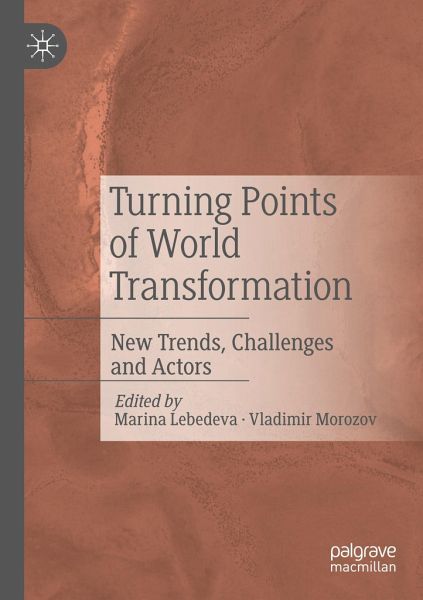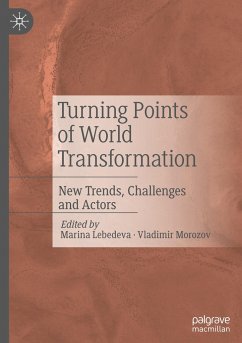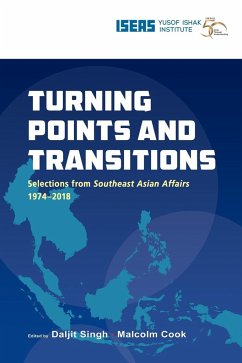
Turning Points of World Transformation
New Trends, Challenges and Actors
Herausgegeben: Lebedeva, Marina; Morozov, Vladimir
Versandkostenfrei!
Versandfertig in 6-10 Tagen
91,99 €
inkl. MwSt.

PAYBACK Punkte
46 °P sammeln!
This book explores the transformation of the political organization of the world as manifest in different spheres of world politics, in particular, in world politics, regional studies, interaction of MNCs and government agencies, and state responses to biogenic challenges. To achieve this goal, M. Lebedeva proposes the concept of a political organization of the world, which in modern conditions is in the process of transformation. The transformation of the political organization of the world is accompanied by megatrends (globalization, integration, democratization) and the opposite trends (de-...
This book explores the transformation of the political organization of the world as manifest in different spheres of world politics, in particular, in world politics, regional studies, interaction of MNCs and government agencies, and state responses to biogenic challenges. To achieve this goal, M. Lebedeva proposes the concept of a political organization of the world, which in modern conditions is in the process of transformation. The transformation of the political organization of the world is accompanied by megatrends (globalization, integration, democratization) and the opposite trends (de-globalization disintegration, dedemocratization). Interdisciplinary in nature, this book brings together scholars from Russia, the United States, and Canada, and provides a compelling perspective on the geopolitics of our time.












